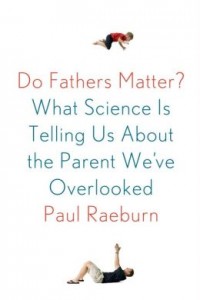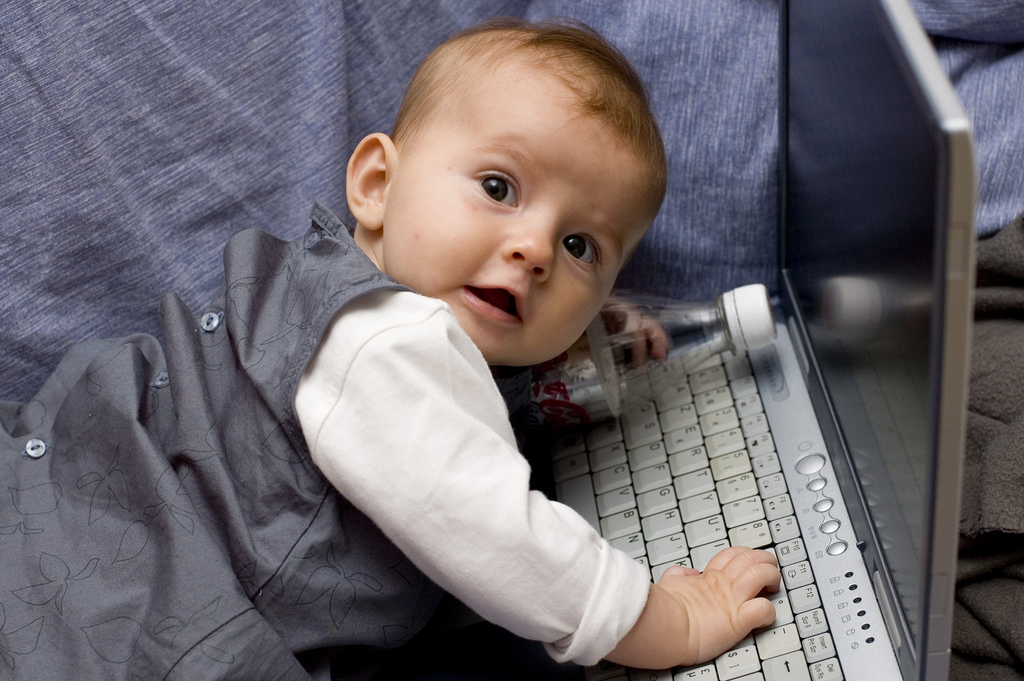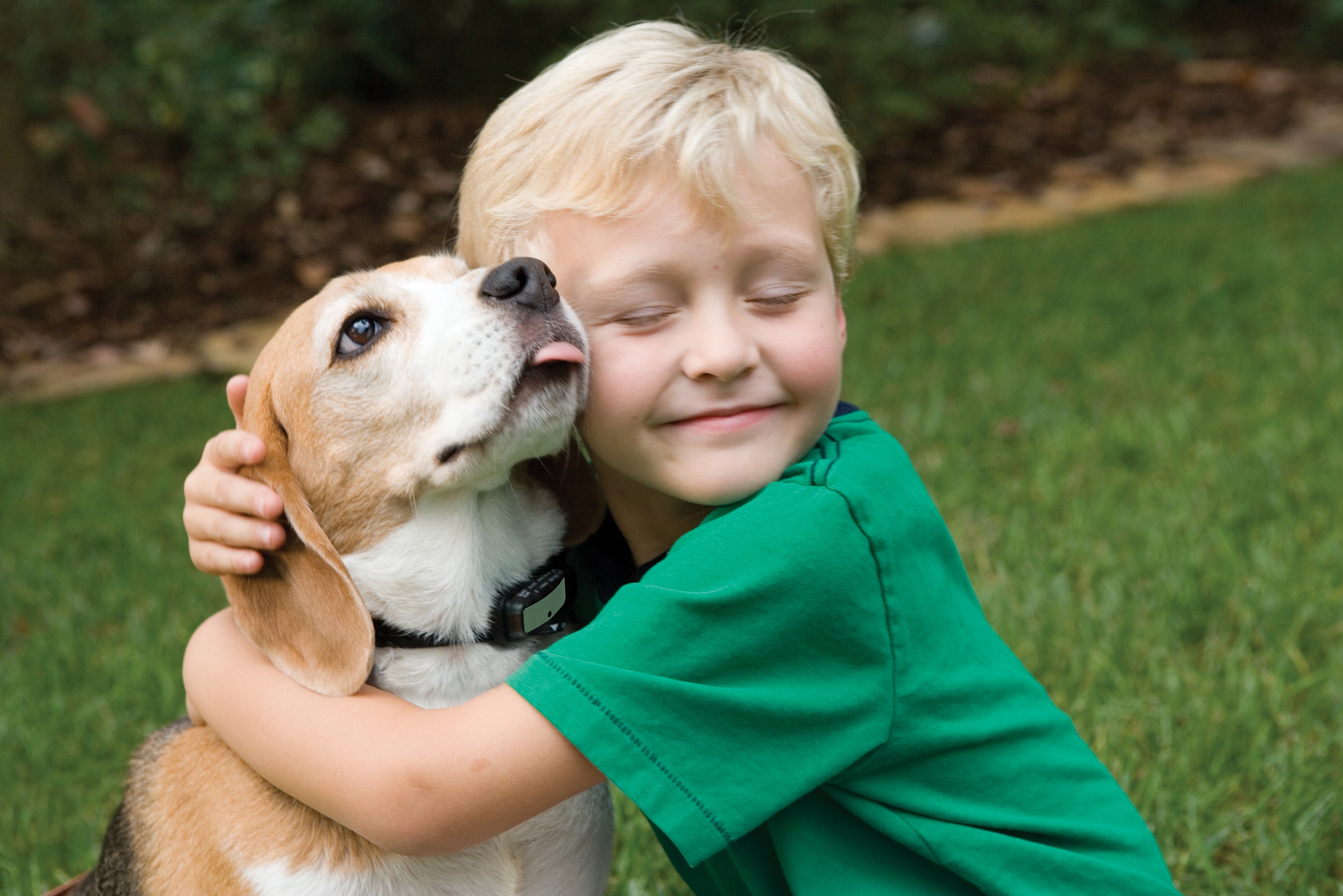Do fathers matter? We here at Dads Who Diaper feel strongly they do.
It’s a question surrounding dads for a long time but with little research to offer any definitive answers. Until now. There’s a new book trying to answer that specific question. Award winning author Paul Raeburn joins us on the podcast this week to discuss his book “Do fathers matter? What Science is Telling us About the Parent We’ve Overlooked.”
You can listen to the podcast by pushing play and streaming it from the audio player to the right. Or you can download the podcast from iTunes here.
Here is a look at the interview we conducted on the Dads Who Diaper podcast with Paul.
DWD: Let’s answer this question first, in all of your research and compiling the science behind “Do Fathers Matter” what’s the verdict?
Paul: “Can’t I just ask people to buy the book, do I have to give away the answers? (laughs) The answer is yes, fathers matter. What the book is about, is all the ways in which fathers matter and I really uncovered just a huge treasure-trove of research about all the things fathers contribute to their kids. I was pretty sure I’d find some interesting things when I started working on the book but I was really amazed by how much there was to say.”
DWD: Looking through your book, I was surprised by some of the things, including how much a father can affect their child before they’re ever born?
Paul: “Yes, that’s right. So fathers have a tremendous link to their unborn child during their partner’s pregnancy. Assuming they spend time with them, live with them, interact with them a lot, we know mothers during pregnancy go through a lot of hormonal changes, that’s old news. But the new news is that fathers also go through similarly transformative hormonal changes, huge changes. What happens is testosterone falls in men when their partners are pregnant, a hormone called prolactin, which is associated with nursing in women, I was surprised to discover that men even had prolactin. Prolactin rises in men and cortosil levels are related to stress which change and a series of things happen that seem to be preparing men, biologically, for fatherhood. And so there’s this tremendous connection they have with their unborn child, they have not seen except maybe on an ultrasound photo. They certainly haven’t chatted with him or her yet, but already there’s a connection and that sets the pattern for what happens with fathers and kids through the early years, toddler, school, and even into adulthood.”
DWD: Why do you think it took so long for researchers to start including fathers in all of their studies?
Paul: “We don’t really know the answer to that, but I have a theory that fits the facts pretty well. My guess is that we were victims or our economic circumstances. So what I mean by that, in the 19th century nobody asked if fathers were important to kids, because kids as soon as they were old enough to grab a rake or carry a bucket in the barn were working with their fathers in the fields and in the barns, helping out with the family. If they ran a small shop, kids were involved with that too. Kids were intimately involved with both mothers and fathers because they were all in the home or near the home or on the farm together. With the Industrial Revolution, more than 100 years ago now, that’s when fathers started going off to work in the factories and mothers stayed home with the kids, and that lasted for so long that I think we all thought, even smart people who do research, began to think this is the way it had to be. This was the natural state of affairs. Mothers are home, fathers are away, so mothers must be more important. They’re the ones who are there. It wasn’t until the last couple of decades when the economy did a number on us again, and a lot of mothers started going back to work, work outside the home, and a lot of couples with both parents earning wages now, that we tipped the apple cart upside down. Fathers now have more complicated schedules and in many cases are able to spend more time with their kids. As mothers and fathers pass off the kids coming and going to and from work. I think that because mothers had spent so much more time with the kids for so long, even researchers were a little bit blindsided and thought, they must be more important, when in fact there’s nothing to show that. Both parents are important.”
DWD: Timing of your book, I think is important because as you kind of eluded to there, there’s been a shift culturally where now more dads are now involved with their kids. They’re enjoying things, raising their kids, changing diapers, playing peekaboo at home. Is that what your studies have been finding?
Paul: “That’s right. I always have this notion, I’m pretty emotionally demonstrative and remember when my kids, I had them in a little swing in front of me. I’d lean down and kiss them on the top of the head and that kind of a thing. I probably should have been a little more discreet in public, but I wasn’t. It always seemed to me, ‘why doesn’t some researcher leave the lab, come home, and stop in a coffee shop or restaurant and see a father nuzzling with his kid and see that there’s a lot going on here?’ So I think men have been told for so long that they weren’t important that they began to believe it. So they didn’t make the kind of effort that they would have made if someone had been standing there saying, ‘you’re just as important as mom, there’s a lot you can do here and here’s what it is.’ Even now, I don’t think that message has completely gotten through and part of the reason I wrote the book is so here’s a resource of all kinds of things fathers can do for their kids, pick some ones that fit you and fit your kids and adopt those. That’s what I’ve done, some of it speaks to me more than others but there’s a lot there, so different families and fathers can pick things they think will help and everybody can benefit especially their kids.”
DWD: You talk about language, you talk about the role a father’s language has with children, almost, if not more important, than with mothers. Can you elaborate on that just a little bit?
Paul: “We know that families with greater education are going to have kids who are more verbal and develop language more quickly. Some of that has been known for awhile. But researchers at the University of North Carolina looked at mothers and fathers to see which was more important? It’s a good question to ask. I think they expected to find that mothers were more important, again because even with the changes in families, it’s still true that in a lot of families mothers spend more time with the kids. What they found was that fathers in fact had a very important influence on language development skills. The warmer the relationship they had, the more time they spent with them, the kids develop language more quickly and that had good consequences down the line. They made an easier transition to school, they even had fewer behavioral problems in school. When they looked at mothers in the same way, there was no correlation between what mothers did and language and kids, which surprised even the researchers. What they think is going on is, fathers because they often spend less time with the kids are less attuned to the children and maybe temperamentally fathers aren’t as likely to be attuned to their children in that way. so they use more words kids don’t know. They pull the kids along and the kids tend to adopt those words and learn what they mean and their language develops more quickly. Mothers tend to tune in and adjust their language a bit more to what they know their kids can understand. So both things are good, having a sort of attuned response from mother gives the kids confidence, having this different more casual approach from some fathers helps develop language more quickly. So again, we’re not surprised to find mothers are important in this in a certain kind of way. I think we are surprised to find fathers play such an important role.”
DWD: Your book finds a child can influence a father’s health as well?
Paul: “It’s a two way street here. I’m not really surprised once we began to discover this. So fathers have many many important infuences on their kids health. Even into adulthood, and I talk a lot about that in “Do Fathers Matter.” It’s also true kids have good effects on fathers. One particularly good story and this may involve mothers as well, I’ll explain how. You may have heard of the hormone oxytocin, it’s associated in humans with emotion connections and bonding and shoot me for saying this. People refer to it as the love hormone, which is a really pretty grotesque distortion of what it really does. But it is associated with emotional connection, ok? So, what happens when fathers play with their kids? Well the first thing people did is you can take a sniff of oxytocin, it’s easy to take. So researchers gave dads a sniff of oxytocin and watched them play with their kids. The dads were much more involved with the kids, seemed to be more emotionally attuned, in fact they seemed to be connected to their kids better when they took a sniff of oxytocin. Then they did it the other way. They had dads play with their kids and they measured their oxytocin before and after. It turned out when dads played with their kids, had a good session, whatever it was. Rolling on the floor tickling, or playing Chutes & Ladders, or whatever it might be. Fathers experienced a rise in oxytocin after playing with their kids. So that’s the science. Now I’m going to give you the kind of trashy speculation of mine of what’s going on there. This is worth exactly what you’re paying for, this advice right here. And that is, if fathers have a rise in oxytocin from playing with their kids they’re likely to be more emotionally attuned and emotionally available to their wives or their partners. So in fact we get a double whammy here. Fathers playing with kids, they feel better and it’s good for their relationship with the kids mom. What could you ask for that’s better than that?”
DWD: You spent so much time going through research that went back a considerable amount of years. After you digested all that, consumed it all, and wrote your book, what is your take on fatherhood today and into the future?
Paul: “ I think a couple of things. I think we really need to absorb this research. This is the first book to really bring a lot of this news to the public and to look not only in psychology, but in anthropology, biology, and genetics and all kinds of things. So I try to lay it out there so people can see what’s going on and see how much fathers matter, that’s number one. Number two, is we need to start having social policies that reflect the importance of fathers. I think there are three countries in the world that do not require paid paternal leave. And those countries, I’m not going to remember them all, one is Lesotho, the other I think is Papua New Guinea, there’s one other and then there’s the United States of America. All the industrialized developed countries, and even almost all the undeveloped countries require paternal leave, the U.S. doesn’t, we gotta fix that, we need to fix that right away. There’s another area where this is very important and that is in the divorce courts and family courts. We know sadly that we have a very high divorce rate in this country. I say sadly because that usually involves all kinds of emotional strain and trauma on parents and kids alike. You know, I was just talking to a divorce lawyer yesterday and he says too many times judges rubber stamp agreements that give fathers minimal contact with their kids. So the father gets the summer, two months in the summer, the mother gets the kids all the rest of the time. That’s not enough for fathers to give kids what they need from their fathers. A weekend or two a month is not enough, it’s not. Until divorce lawyers, child custody experts, and family court judges read “Do Fathers Matter” or something like it we’re not going to get the change we really need. We’re not going to get rid of divorce so we’ve got to try to minimize the consequences as much as we can.”
Paul Raeburn is the author of “Do fathers matter? What Science is Telling us About the Parent We’ve Overlooked.”
This interview is part of our ongoing series with leaders and companies involved in parenting products or issues. Which authors would you like to hear from? Leave a suggestion in the comments and we’ll track them down.
You can subscribe and download the “Dads Who Diaper” podcasts on iTunes here.
Follow us on Twitter: @DadsWhoDiaper
“Like” us on Facebook: Facebook.com/dadswhodiaper








Pingback: Raising Baby In A Digital World | Dads Who Diaper
Pingback: Fathers Day versus Mother Day, Dads Lose | Dads Who Diaper